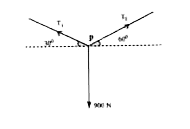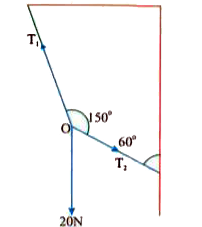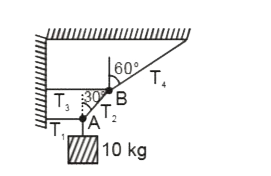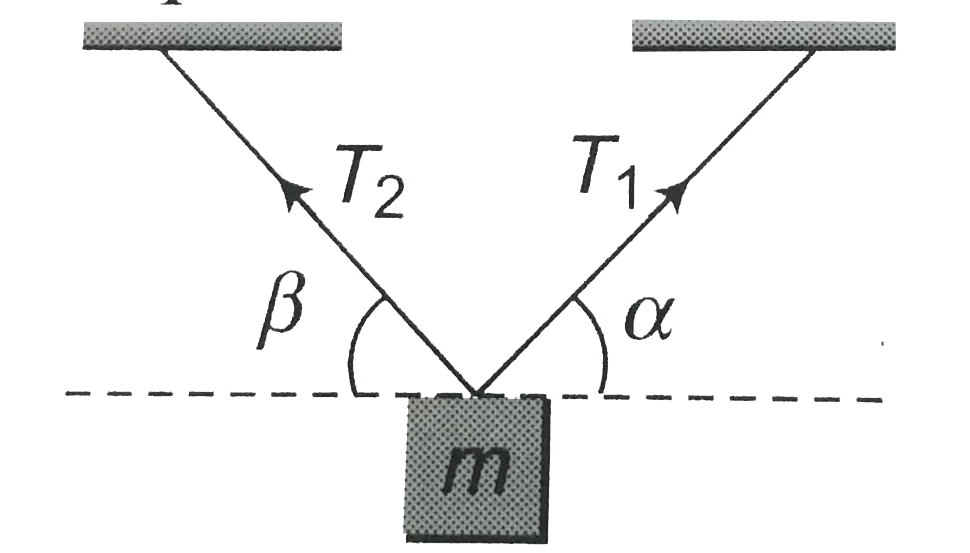If .P. is in equilibrium then T1/T2 is

√3
2
1/√3
1/2
The correct Answer is:C
Topper's Solved these Questions
- MOTION IN A PLANE BOOK - AAKASH SERIESCHAPTER - MOTION IN A PLANE EXERCISE - Practice Exercise
84 Videos
- MOTION IN A PLANE BOOK - AAKASH SERIESCHAPTER - MOTION IN A PLANE EXERCISE - Exercise -I
91 Videos
- MECHANICAL PROPERTIES OF SOLIDSBOOK - AAKASH SERIESCHAPTER - MECHANICAL PROPERTIES OF SOLIDSEXERCISE - EXERCISE - 3
26 Videos
- MOTION IN A STRAIGHT LINEBOOK - AAKASH SERIESCHAPTER - MOTION IN A STRAIGHT LINEEXERCISE - Questions for Descriptive Answers
7 Videos
Similar Questions
Knowledge Check
If 'O' is at equilibrium then the values of the tension T1 and T2 respectively.
 A20N, 30 NB20√3N,20NC20√3N,20√3ND10N, 30 N
A20N, 30 NB20√3N,20NC20√3N,20√3ND10N, 30 NThe enthalpies of two reactions are ΔH1andΔH2 both positive with ΔH2>ΔH1. If the temperature of reacting system is increased from T1 to T2 predict which of the following alternative is correct? Here k is equilibrium constant at T1andk' is equilibrium constant at T2.
Ak1k1=k2k2Bk1k1>k2k2Ck'1k1=k'2k2Dk'1k1<k'2k2If O is at equilibrium then the values of the tension T1 and T2 are, (20N is acting vertically downwards at O).
 A20N,30NB20√3N,20NC20√3N,20√3ND10N,30N
A20N,30NB20√3N,20NC20√3N,20√3ND10N,30N
The system shown in figure is in equilibrium. Find the magnitude of tension in each string, T1,T2,T3 and T4(g=10m/s−2)

View SolutionThe block is in equilibrium

(i)T1=mgcosβsin(α+β) (ii)T2=mgcosαsin(α+β)
(iii)T1T2=cosβcosα (iv)T1T2=cosαcosβ
View SolutionThe common difference d of the A.P. in which T7=9andT1T2T7 is least is
View SolutionFor a given exothermic reaction , Kp and k'p are the equilibrium constants at temperatures T1 and T2 respectively. Assuming that heat of reaction is constant in temperature range between T1andT2 , it is readily observed that
View SolutionFor a given exothermic reaction , Kp and k'p are the equilibrium constants at temperatures T1 and T2 respectively. Assuming that heat of reaction is constant in temperature range reaction is constant in temperature range between T1andT2 , it is readily observed that
View Solution

